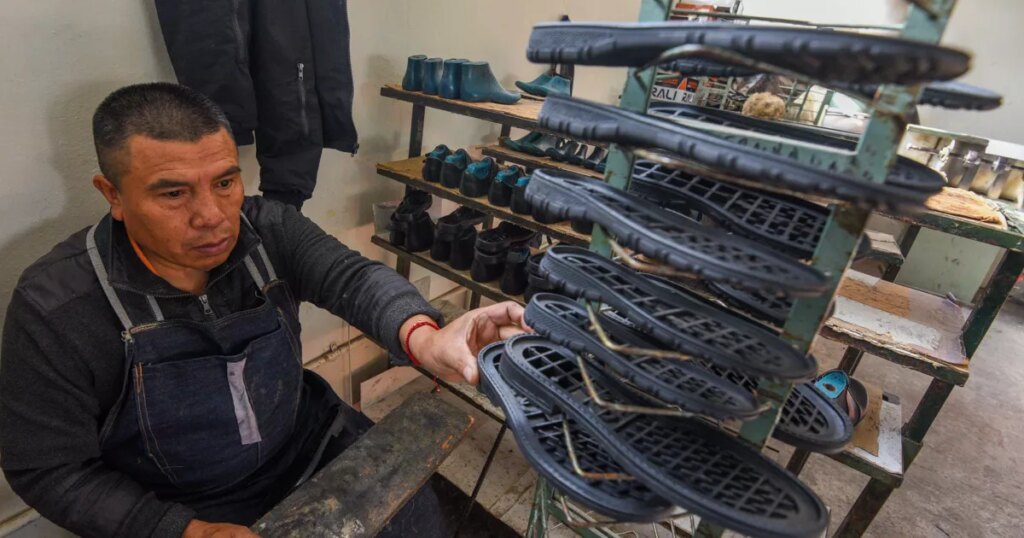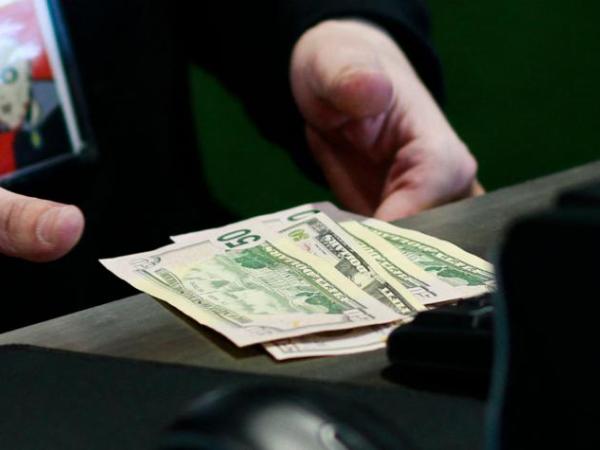In an Argentine mansion, José Raúl Capablanca is remembered. Its ancient architecture hides frameworks in which wood abounds; so much so that one, when retracing halls or going up stairs with thick steps, listens to the creak with the impression of being on top of a ship, one even older than the steam aboard which the Cuban genius first arrived in these lands at the beginning of the 19th century. Last century.
It is the Argentine Chess Club. It is in a narrow street, Paraguay, around the corner from Callao in Buenos Aires. Its president tells me, whom I find in the hall First of all, something I already know: that they have a room to commemorate a memorable moment in the life of a Cuban, which happened in November 1927.
Capablanca’s first visit to Buenos Aires dates back to 1911, in the month of April. According to Juan Sebastián Morgado —whose books I came to on the recommendation of one of the specialists in Capablanca, the Cuban journalist based in the United States Miguel Ángel Sánchez—, in the months that he stayed here his activity was very intense.
There were simultaneous games, meals, entertainment, interviews, trips to cities like Bahía Blanca, visits to theaters, restaurants, and conferences in places like the library of the National Council of Women, described as a “beautiful complement.” Some media reported 180 simultaneous games of which he won 95%, while he is described as a young master characterized by “delicacy, exquisite finesse and modesty of personality”.
At the entrance to the Club, one finds a sign stating that it was founded on April 17, 1905; but you must go up the stairs, which at the same time serves as a gallery with the most illustrious faces of the sport, to enter the history room, located on the next level: a room with a view of the street inside which are abundant with mirrors and details of that architecture symbolizing a dead age. Next to the wall and protected by glass, I notice the pieces that Capablanca and Alexandre Alekhine used in the famous match of 27 have been preserved. They are solid, carved in wood. I stop to look at one of the horses. Dramatic aspect, severe as a samurai that preserves the wounds of a hundred fights.
On the front, displayed among the photos, a handwritten letter from the Cuban genius dated January of the same year 1927. He thanks the Club for the invitation to star in the matches in which he would have to defend the world title that he had at the age of 32, when in 1920 Lasker gave it up in his favor. In the correspondence he communicates that in a few days he would meet Alekhine in New York, from where he writes and lives, and promises to agree on details about the projected meeting. On another table there is an urn; inside the urn a board; on the board, a black king besieged by four white pieces. Somewhat far away, a tower to protect him.
The matches began on September 16 at the Club, after a registrar recorded in the minutes that “Mrs. José Raúl Capablanca, World Chess Champion, and Alejandro Alhekine, challenging the named champion, begin the championship organized by the Club at 7:00 p.m. ”. The joust had been verified the previous day by the Argentine president in person. Marcelo T. de Alvear, together with the president of the sports institution, Lizardo Molina, carried out the draw that determined that Capablanca would come out with white in the first game and, long before, they had also guaranteed the necessary amount for that match to come to fruition.
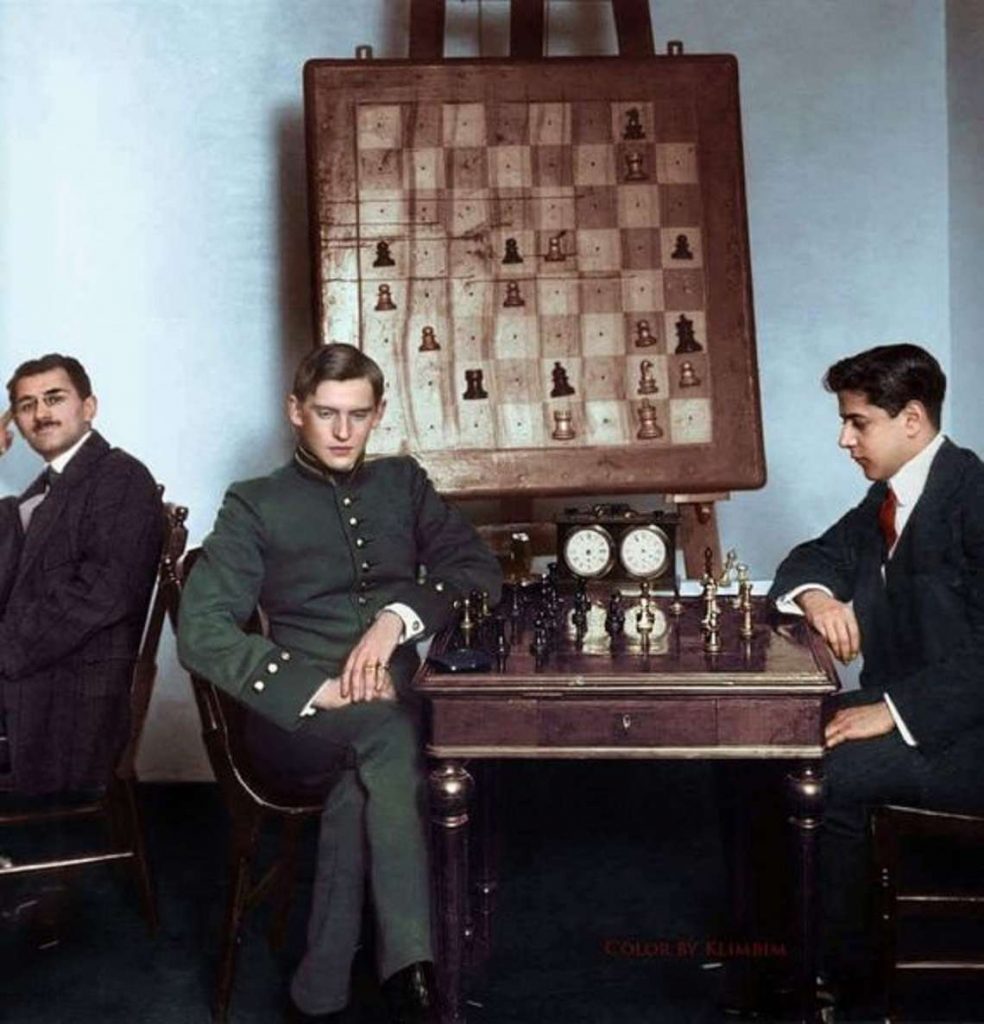
Seventy-four days later, another act was drawn up. It can be seen framed next to the previous one. Record the closure: after having played 34 games, two of them at the Jockey Club, and of which 25 were draws. The Cuban had only achieved victory in three while six were in favor of the Russian player, who, four years younger in terms of age, now kept the title.
Along the way, many details were picked up by the press: “Capablanca meditated for about 50 minutes before making this move. The position is difficult for Black because of the little space they have to develop their plans”; “For the 6th time in a row Alekhine and Capablanca made a draw”; “Due to Dr. Alekhine’s indisposition, the 19th game, which should have been played yesterday, was suspended. The meeting has been postponed”; “A new game was played last night, and the result obtained in it maintains the situation of the match in the same way as the one that originated after the 11th game, in which Dr. Alekhine secured a point advantage in the match. Eight draws have been made since then, and of them only one has managed to interest the spectators”; “Dr. Alekhine won the 21st game last night in impressive fashion. It was a magnificent victory, and in it the winner brilliantly dominated his strong adversary, who gave up after a combination of the Slavic master ”.
Profiles are also left about the mood of the players and the circumstances under which they played. Capablanca is usually described as passionate about sports and, in general, games of ingenuity and skill, “for which he has excellent conditions.” “The baseballthe tennisthe cricket, count it among its enthusiastic fans, as well as the bridgetute, in which he is a true master, dominoes, billiards, of which he is also a good amateur”.
Some of his phrases are commented, that he plays chess better the less he worries about the board outside of game hours, given that it is profitable for him to dedicate himself to the practice of various activities. “Capablanca is having fun. Alekhine makes a living according to the demands of the match, accumulating energy in the roof garden of the Majestic Hotel, where he is staying with his wife. It is said that the Russian presented serious dental problems at this time for which he ended the confrontation with six fewer teeth.
“Capablanca is seen everywhere where there is nightlife. In the Porteño theater of magazines, directed by Bayón Herrera, he regularly occupies a box with some friends, and the same in the Maipo theater, where as soon as they see him appear in the room, from the leading figures to the chorus girls they allude to his presence. with sayings and songs that come to the case and the public celebrates. She is often seen in the voiturette red Rambler guided by Consuelo Velázquez, one of the soubrettes most renowned that the Argentine theater has had. And the late nights end in a famous restaurant on Avenida Callao, where all the night owls go to recharge their batteries. On Sundays he is seen infallible in the courses of Palermo”.
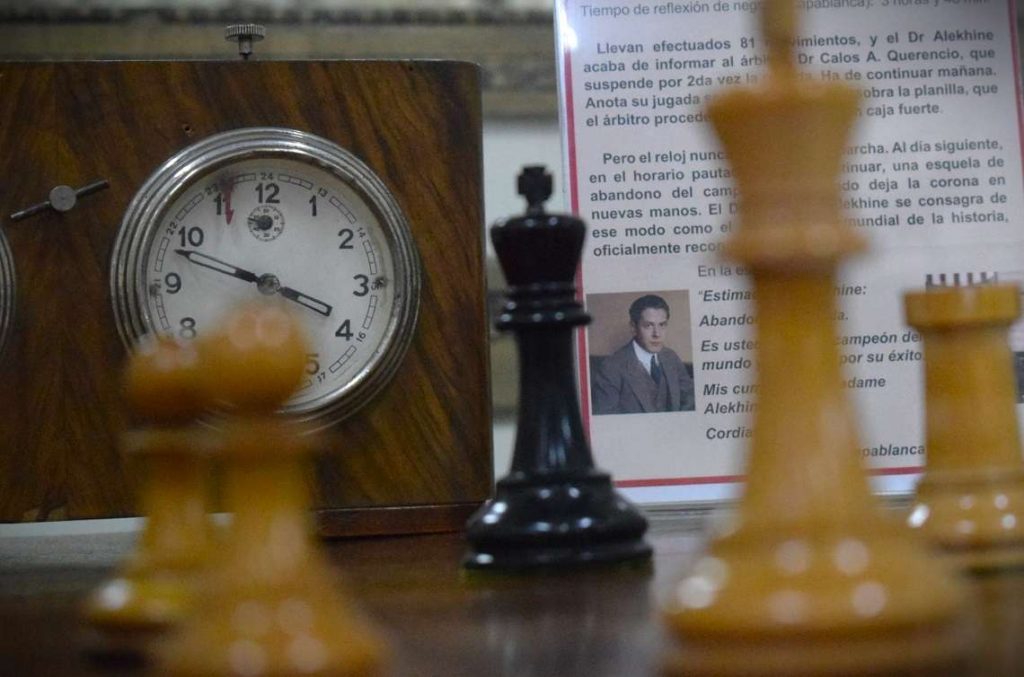
According to Morgado, the journalist from Criticism Amilcar Celaya wrote that on one of those days Capablanca arrived in high spirits and greeted his rival with affection. In another, that when he surrendered his king, he violently lowered his arms to his knees and, discouraged, released a phrase: “I don’t know what’s wrong with me.” He got up, went to the bathroom, and after wetting his forehead, came back fresh, happy, and calm.
If Alekhine in the eyes of a certain press was courteous, simple, “incapable of arrogance”, “of intemperance, of a boastful arrogant phrase”, Capablanca is seen as the man who seems immersed in an atmosphere “of violence”, “hostile ”, “of unpopularity” that owes, according to this perspective, “to friends, fans or blind admirers of the champion”. “We don’t know what is true in certain considerations, but undoubtedly the champion’s friends have circulated phrases like these on certain occasions: ‘It escaped me’, ‘It will be another day’. And more like that.”
“Dr. Alekhine told us yesterday that, indeed, during the 21st game he had demanded silence from Capablanca and another gentleman, who were talking loudly in the corridor near the hall of the matches; that he did not know who that other gentleman was… ”.
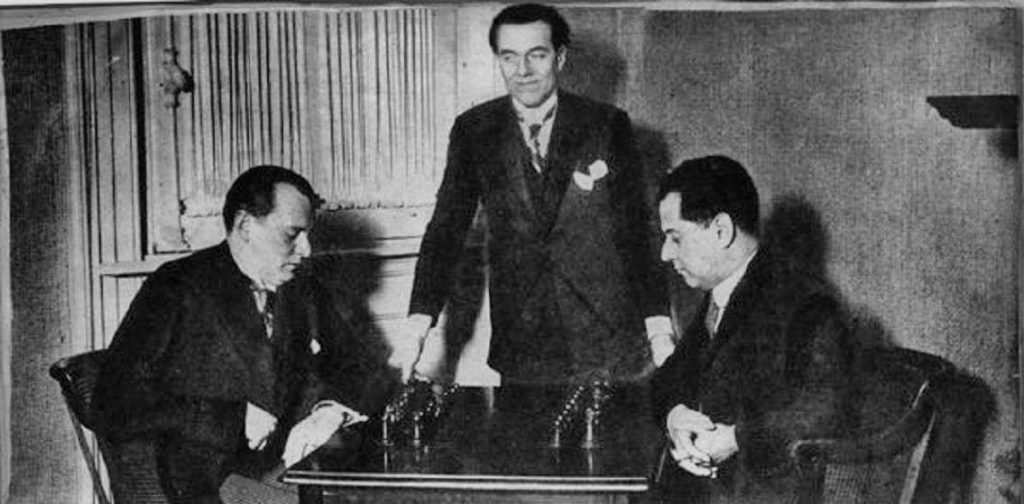
The last game started with a queens gambit. Alekhine’s first move was taking the pawn to the d4 square, but the game would stretch to 81 moves over two days. At 8:25 p.m. on Monday, November 28, the referee stopped the clock. Alekhine reported that he was suspending the game again. The next day, at the scheduled time to continue, Capablanca surprises with a note: “Dear Dr. Alekhine. I leave the game. So you are the world champion and I congratulate you on your success. My compliments to Madame Alekhine. Cordially yours.”
White’s thinking time had been 5 hours and 3 minutes; Black’s, 3 hours and 48 minutes. All history is inside this room that implodes in memories. I turn around and go down the stairs. The president of the Club, still at the entrance, somewhat gloomy due to the hour, talks to me. He has Cuban friends with whom he played correspondence games. I ask him on which floor and room the famous game between the Cuban and the Russian took place. “It wasn’t here,” he replies. The Club was at another venue on those dates. Almost a hundred years ago everything, but the memory remains alive around here.










